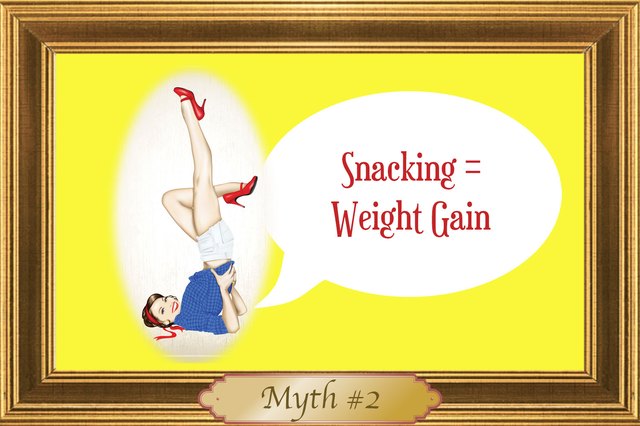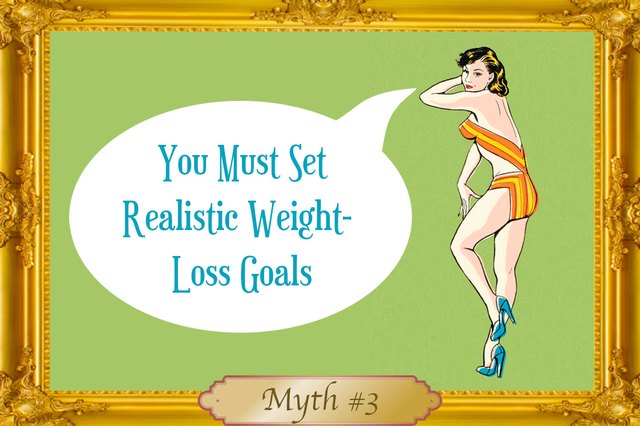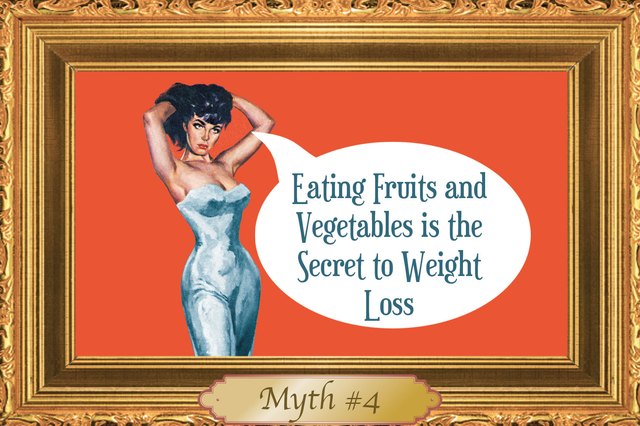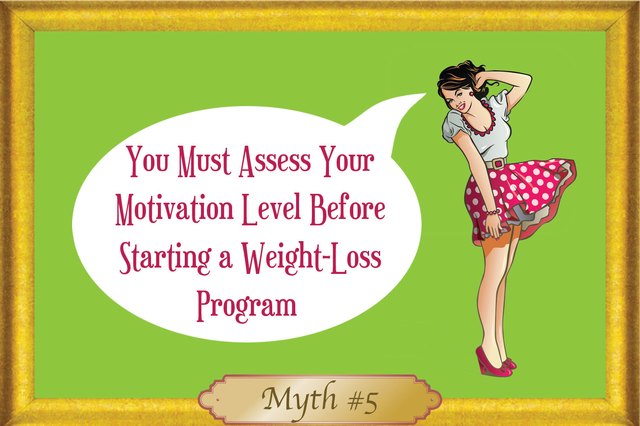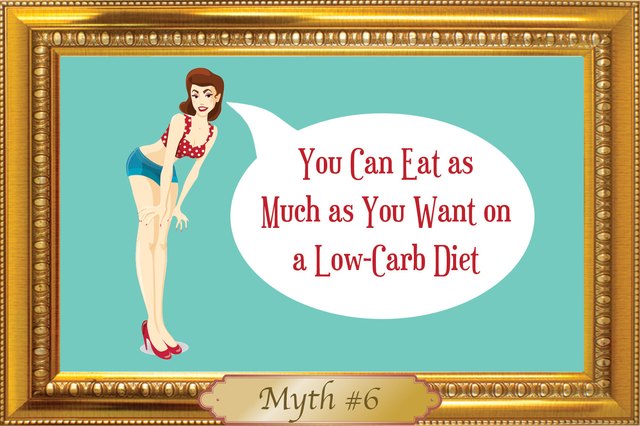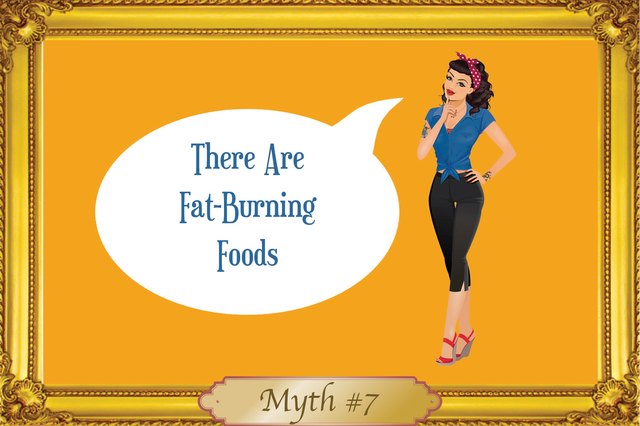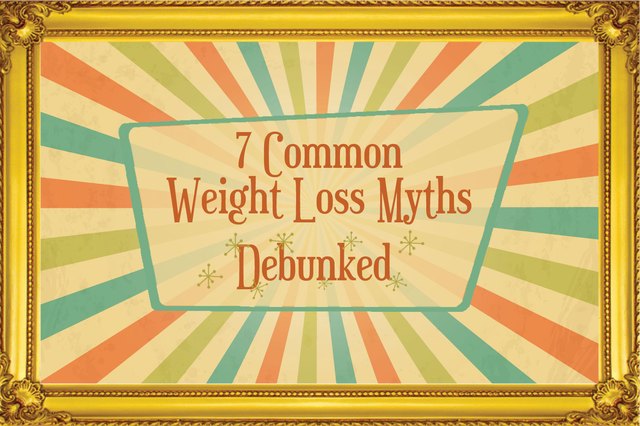
it's always good to question popular opinions or beliefs that are touted as facts. Sometimes "facts" are not facts at all, but just the ideas repeated by influential groups over and over again, so that over time, they are considered facts. It's true when it comes to diet and weight loss. There are a lot of perceived "facts" that are actually wrong, and believing some of them may hinder you from realizing your true weight loss potential. Read on to learn seven myths about diet and weight loss. Myth 1: small behavior change = long-term weight loss over time, these changes will obtain significant weight loss effect. An extra mile a day will burn 100 calories, which, in theory, will result in the loss of nearly 50 pounds in five years. But in fact, studies have shown that, on average, this change in behavior results in only about 10 pounds of weight loss, because the change in weight also changes your body's energy needs. To make meaningful changes to your body, you can't rely on a small change over time. Instead, make a lot of small changes based on each other. The synergy of many small changes will change the way you eat and exercise, and lead to meaningful weight loss.
related: 28 diet tips, enemies that help you lose weight - a good way to eat too many calories and block weight loss - but it doesn't have to hinder your weight loss efforts. Snacks account for more than 25% of our total calories, so if we do it right, it can actually improve the overall quality of our diet (increase more fiber, vitamins, minerals, etc.), at the same time, it can help suppress our appetite and prevent us from eating too much. In a 2009 study, researchers reviewed data from the 1999-2004 national health and Nutrition Examination Survey (NHANES) and looked at patterns of adults and non eating and snack eating. The researchers found that among all adults (both those who did not eat and those who did not), people who ate snacks were less likely to be overweight or obese than those who did not. Another 2011 study found that snacking was more common among women with normal or recent weight loss than among overweight women. If you're good at snacking, you don't have to have a negative impact on your weight. related: healthy snacks with less than 200 calories which seems to be a good suggestion, doesn't it? Set realistic weight loss goals so that when you don't achieve unrealistic goals, you won't be too depressed and give up. However, how realistic or unrealistic your weight loss goals are has little effect on how much weight you lose. A study of 302 women who are actively trying to lose weight found that although people's weight-loss goals average as high as 24%, this does not prevent weight loss. In fact, more aggressive weight loss goals are associated with greater expected effort and return, and ultimately greater weight loss after 18 months. Another study of 1801 people found that the more unrealistic the goal of weight loss, the more obvious the effect of weight loss after two years. Don't be afraid to set radical weight loss goals - just make sure they are healthy. You may be more motivated to succeed! related: sign up to receive the free livestrong.com weekly health and fitness press release myth 3: you have to set a realistic weight loss goal
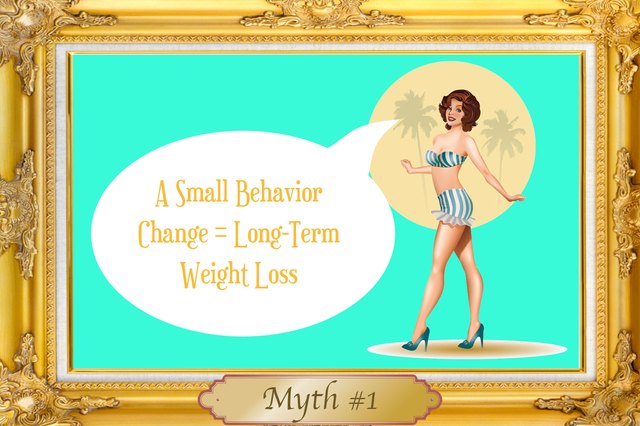
myth 4: eating fruits and vegetables is the secret to weight loss, because they are usually foods with high moisture and fiber content and low calorie per gram. But eating them doesn't guarantee weight loss. In one study, participants increased their intake of fruits and vegetables by 10 servings per day, but did not lose any weight. In a 2014 study, researchers reviewed more than seven studies on the relationship between fruit and vegetable intake and weight loss, and found that these data had no effect. The good news is that participants didn't gain weight, but they didn't either. While you may improve the quality of your diet, you won't lose weight by simply adding them to your diet without replacing other calorie rich foods, malnourished foods or strategies that don't increase energy consumption.
related: diet secret recipe to help you lose weight, then start. Time will never be perfect, and you may never be fully prepared. It has become a common practice for health experts to assess a person's readiness to change their diet, but several studies of nearly 4000 people found that a person's readiness had little effect on weight loss or sustained success. It seems that the only obstacle you need to overcome is to start. If you're ready to start your weight loss program, do it. Don't think too much or analyze too much, just let it happen. Your ability to stick to a weight-loss plan is the key. Even if you don't know much at first, you'll know what you need to know as time goes on and you're starting to lose weight.
related: Photos of real members' motivation before and after weight loss
Credit: Ernesto Victor Saur Herrera Hernandezmyth 6: in a low carb diet, you can eat as much as you want, but this is actually what you want. A very common misunderstanding. Low carbohydrate diet is rich in fat and protein, which are two very satisfying ingredients in food. Because of this, participants in the low carb diet study were rarely given a low calorie goal, but were advised to eat until they were satisfied, which was enough to control calories and trigger weight loss. But there is a big difference between eating "satisfied" and eating as much as you want. High fat food, usually consumed in a low carbohydrate diet, is high in calories, and it's easy to over consume if you don't listen to your body's own signals of fullness. In terms of weight loss, calorie control is the most important, while protein and other nutrients, carbohydrate and fat are important, but secondary.
correlation: 20 kinds of convenient low carbohydrate snacks
Credit:myth 7: fat burning food is touted every day. In fact, it really increases the body's ability to burn calories.The food list is very short and limited to a few foods, such as green tea and peppers, which need to be condensed into supplements to produce any significant effect. Most foods that claim to contain fat burning have low calories and carbohydrates, and high fiber and / or protein content. These foods have properties that support calorie and hormone control and optimize weight loss, but they don't actually stimulate your body to burn more fat. In the case of foods like coconut oil, its thermogenic (i.e. by increasing the amount of heat generated by burning fat) does not burn enough calories to overcome the food's heat density.
related: 28 diet tips to help you lose weight what do you think? Do you believe these myths are true? Have you eliminated these myths through your own experience? What common weight loss myths do you think should be included? Please share your thoughts with us below. correlation: 12 unhealthy health trends 